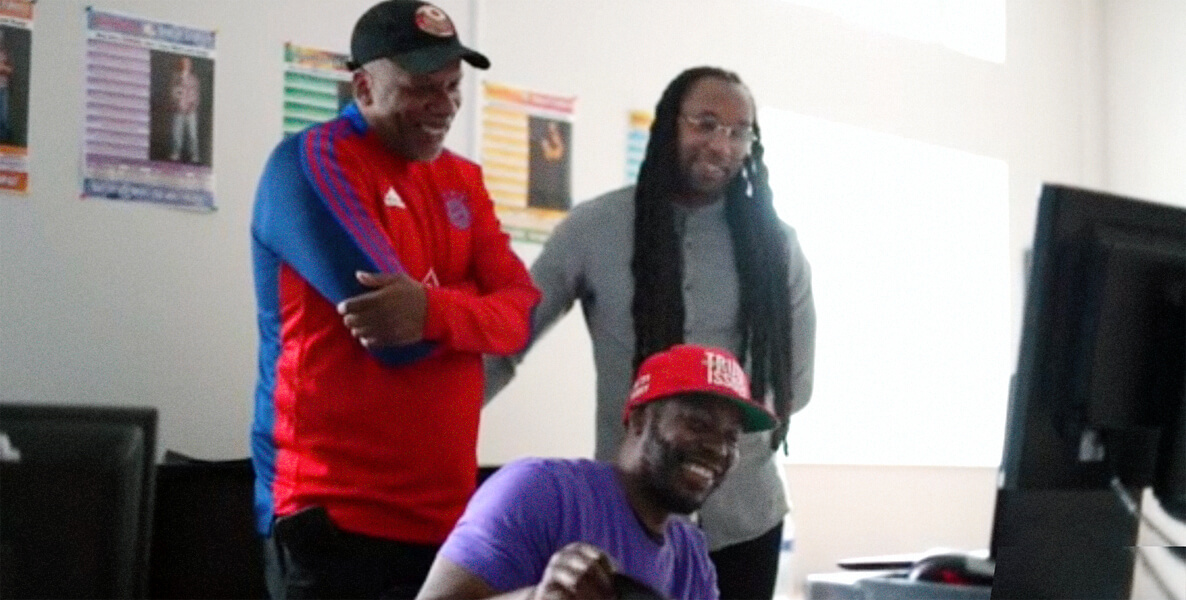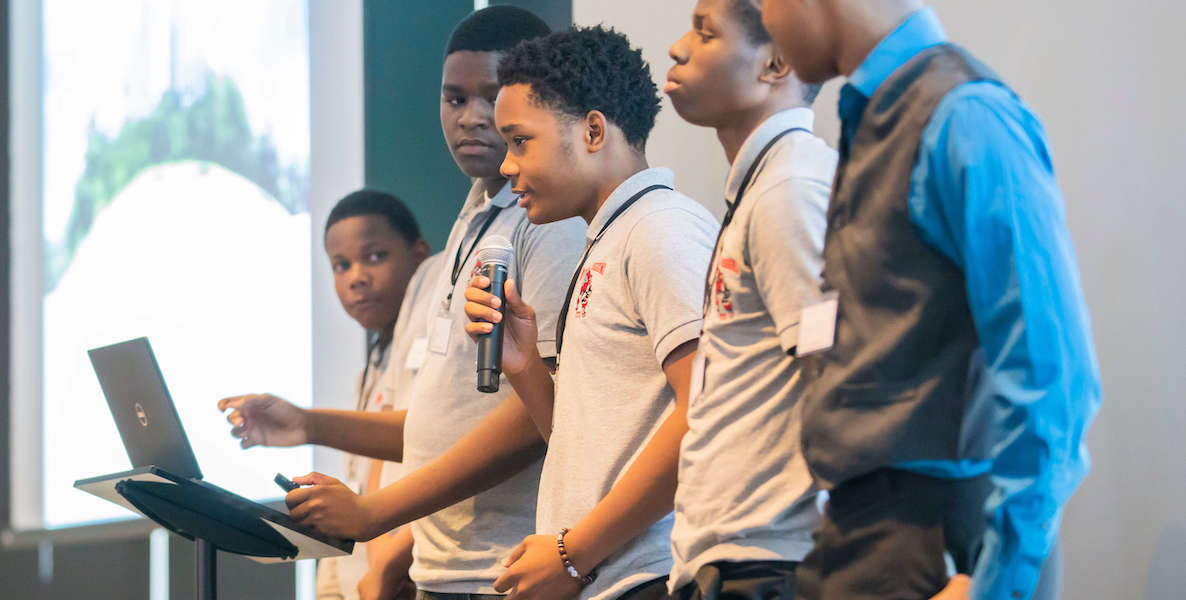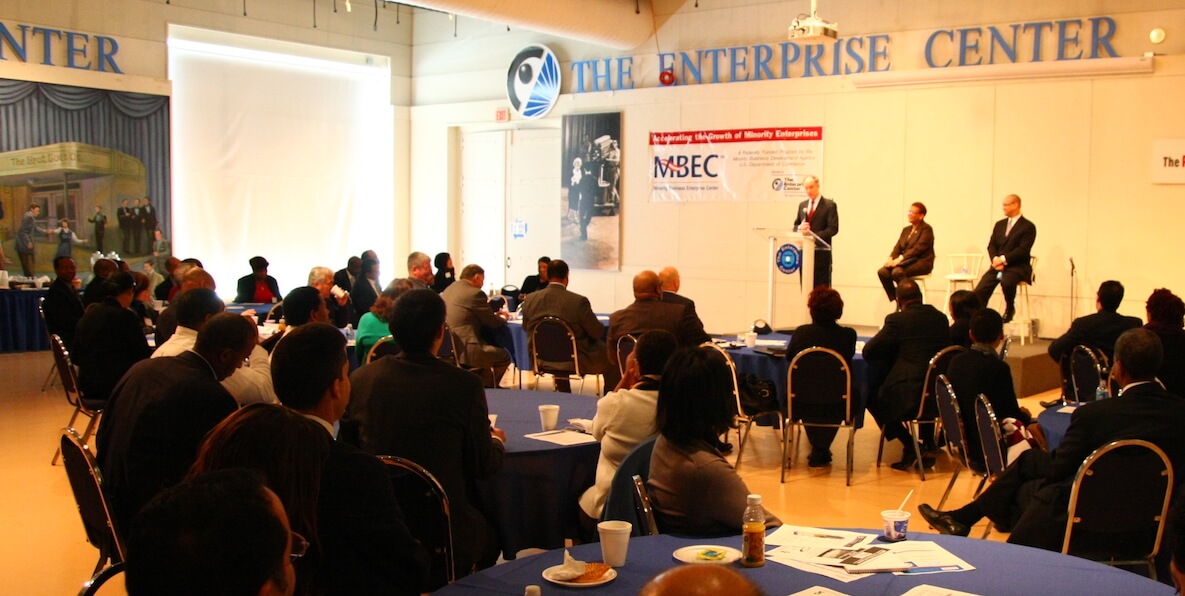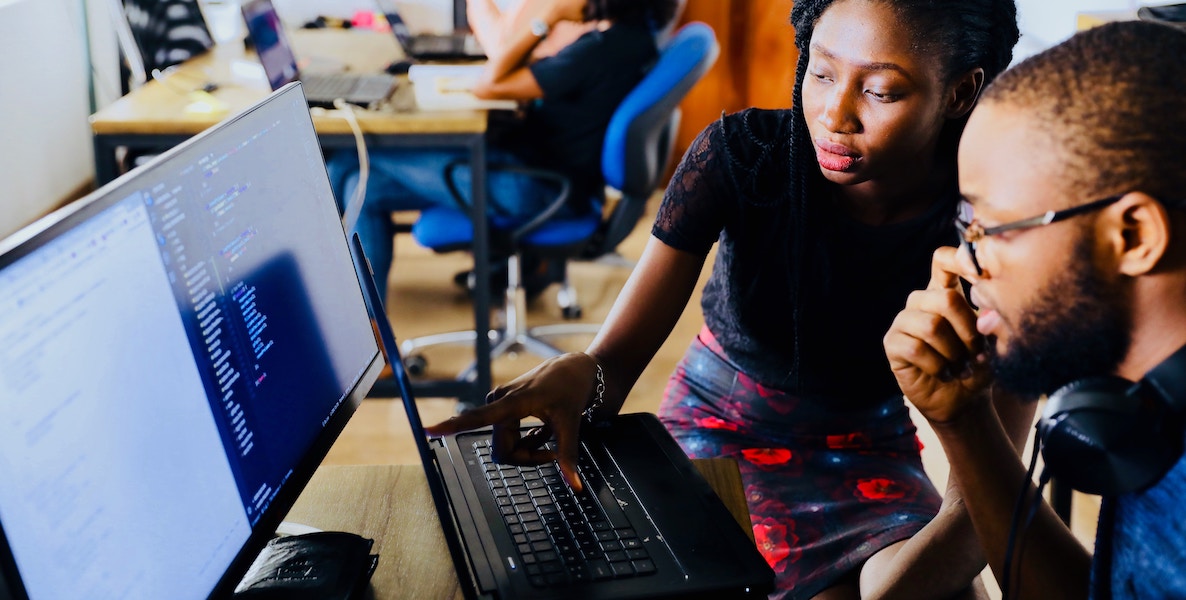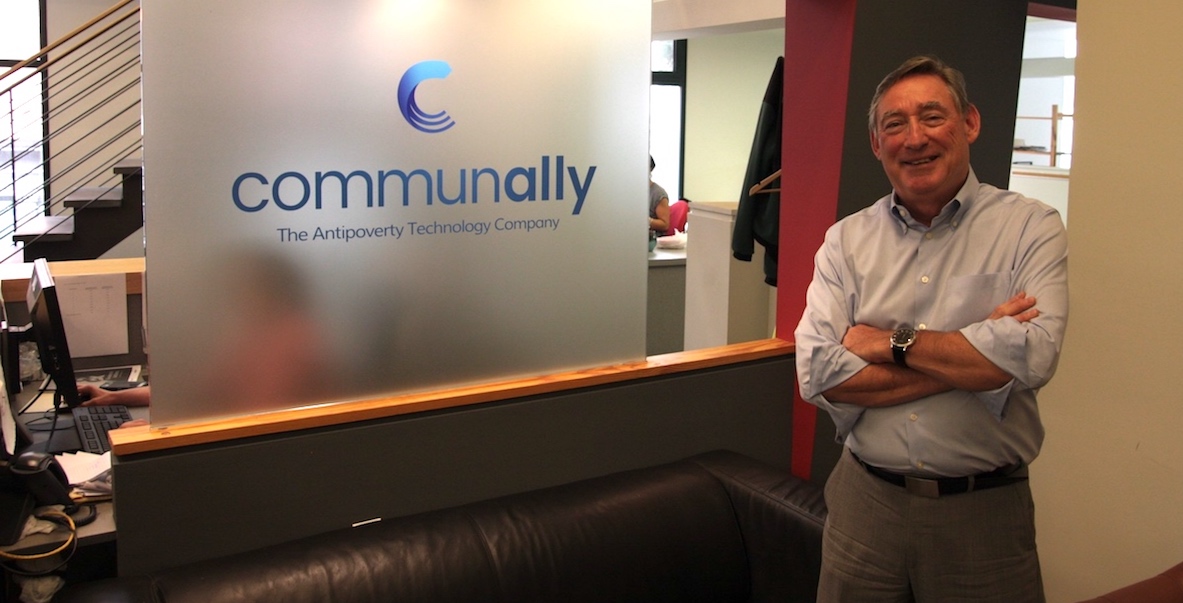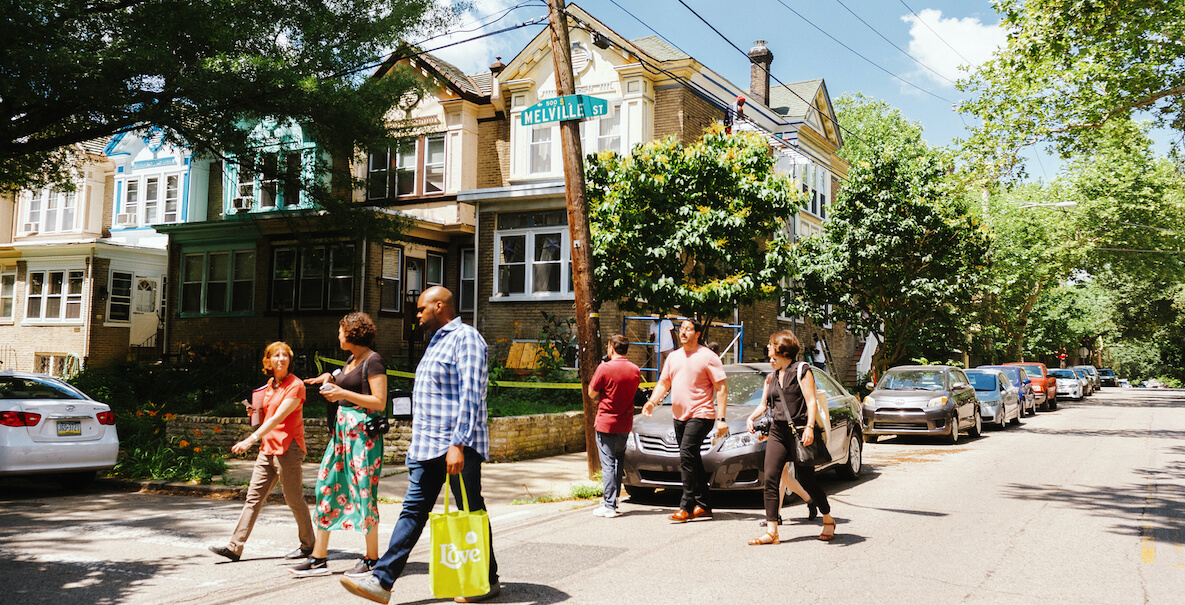Six or seven years ago, in the early days of tech business training program Coded By Kids, founder Sylvester Mobley and his team spotted two Philly high schoolers with talents that seemed perfect for each other. One was really good with technology; the other had a good grasp on creating a workable business model.
CBK introduced the two young Black men, and suggested they partner on various projects of their own choosing to hone their skills. They went on to work for CBK while in college, one now a rising fourth year at Drexel University, the other an incoming senior at Wharton. And they stepped up to CBK’s challenge to them to launch their own startup, a data analytics product for educators.
Now, that company, run by those former CBK students, is the first to receive a $150,000 capital investment from CBK’s Plain Sight Capital, an investment tool designed specifically for businesses started by graduates of Coded By Kids’ years-long training program. It’s a model, Mobley posits, with the potential to both lift up underserved entrepreneurs—more than 90 percent of venture money still goes to white men—and provide a good investment to donors.
MORE ON SOCIAL IMPACT INVESTING
- Your 401k might be the best tool for changing the world
- The impact investing revolution
- As You Sow helps you make socially-conscious investment choices
- Radnor’s Sustain VC invests in companies that address inequity
- Jumpstart helps local residents become their neighborhood’s own developers
“If we’re successful, we’re preparing a whole generation of CEOs and CTOs,” Mobley says. “We can matchmake to put people together to build teams. Now we’re investing in those high potential talented people. We have a lot more insight into the people we’re investing in, so we should be able to have better returns.”
Mobley’s six years-in-the-making $50 million venture capital fund is one of nearly a dozen investment vehicles launching in Philadelphia this year that aim for a social, as well as a financial, return. The sheer number of locally-focused social impact investment funds makes Philly a leader in a movement that aims to change who benefits from capital, and how capital works to solve problems—what Richard Binswanger, ImpactPHL board member, calls “equity to end inequity.”
That this comes a year after the uprisings around the murder of George Floyd is especially telling. In the weeks and months since Floyd’s death, American corporations have fallen over themselves to announce myriad DEI efforts, tweeted that Black Lives Matter, promised to use their power to fix the inequities rampant in America. This is actually doing something, not just talking about it. And the cumulative impact could be seismic here, in America’s poorest large city.
“We’ve got to take down the wall that says I give with one arm and invest with another,” says Binswanger. “Getting investors to make money by investing in their community and growing the weaker links in the community changes conversations and puts you in a league where people will follow.”
“If you think about where we are, we’re in a really unique situation,” says Binswanger. “If we start investing in our communities and create intentionality around the idea of finding the thing that makes Philly better, we can be this truly world class city. It changes neighborhoods, changes the whole view of what Philadelphia is across the country and the world. It literally could change the game for the city.”
Social impact investing is deliberately putting your money towards creating the kinds of positive outcomes you want to see in the word. The funds work like this: Accredited investors—both institutions and high wealth individuals—seed money into funds like Plain Sight, which Mobley says is currently closing on its first $5 million. Fund administrators, in turn, put money into companies that fulfill a dual purpose: turning a profit and having a social/civic impact, either because of who is running the company or what its purpose is.
The risk for investors is similar to any kind of venture capital investment. But the potential benefits are manifold: Not only are investors set up to earn a financial return, they also reap the effects of a city and region that are financially and civically growing, with communities that are thriving and have access to expanding opportunities, which in turn makes the city and region more appealing to outside investors and other like-minded companies.
 “We’ve got to take down the wall that says I give with one arm and invest with another,” says Binswanger. “People involved in impact businesses are the people you would love to see here. Getting investors to make money by investing in their community and growing the weaker links in the community changes conversations and puts you in a league where people will follow.”
“We’ve got to take down the wall that says I give with one arm and invest with another,” says Binswanger. “People involved in impact businesses are the people you would love to see here. Getting investors to make money by investing in their community and growing the weaker links in the community changes conversations and puts you in a league where people will follow.”
Gregory Heller, Redevelopment Authority executive director, is one of the organizers of the Philadelphia Accelerator Fund, a new nonprofit loan fund with a goal of raising $100 million to provide capital for affordable housing and supporting historically disadvantaged developers. Heller says the idea originated in San Francisco, where the city invested in creating a new Community Development Financial Institution (CDFI), which has now raised over $260 million in private money and philanthropy to provide loans for low income housing.
“If we start investing in our communities and create intentionality around the idea of finding the thing that makes Philly better, we can be this truly world class city. It changes neighborhoods, changes the whole view of what Philadelphia is across the country and the world. It literally could change the game for the city.”
Here, Heller says developers kept running up against a roadblock: accessing funds to build affordable housing in underserved neighborhoods. Meanwhile, the City and existing lenders could only do so much, filling gaps as they could but not in a wide scale way. The Accelerator solves this with financial products that look more at the project’s social good than the developer’s finances, in part due to a $10 million from the City and Philadelphia Redevelopment Authority that will be used to guarantee $100 million in bank investments.
As word got out about the fund, Heller says he started fielding two to three calls a week from developers interested in community-based projects that will keep housing affordable for people who live in the neighborhood—but who had struck out with getting traditional loans.
“Almost everyone I talked to was Black,” he says. “So that added a whole new dimension: It’s not just that they can’t get financing to build affordable housing in needy neighborhoods, it seems like there’s a whole pool of Black developers who can’t get financing, period.”
Now, the Accelerator Fund has a dual mission: Providing access to capital for Black and brown developers, and investing in affordable housing in underserved neighborhoods.
Like Accelerator and Plain Sight, the funds that are launching or have launched this year will operate in different ways, support different types of companies and touch on different social issues; most are still in the fundraising stages, with plans to raise tens of millions of dollars over the next several months.
Besides these two, they include:
- Fair Food Fund, an initiative from the Michigan-based Fair Food Network, organizers have been designing this investment tool for about a year, before launching the community engagement piece this summer. The goal is to support local entrepreneurs in Camden serving all aspects of the food industry, from farm to table.
- The Collective combines the community engagement and development pedigrees of Tayyib Smith, Steven L. Sanders and Sandra Dungee Glenn, to invest in African American-led development projects in marginalized neighborhoods, with a focus on increasing wealth for long term residents. They expect to close on the first round of $25 million by the end of this year, with an aim of raising $100 million by late 2022.
- Acquisition and Development Loan Fund, with which Women’s Community Revitalization Project and Community Justice Land Trust, are raising $800,000 to $1 million to help them quickly acquire available land in gentrifying neighborhoods on which they can build at least 25 permanently affordable housing units.
- Innovate Capital, five years in the planning from Della Clark’s Enterprise Center, will be a $50 million Small Business Investment Company focused on supporting Black and brown entrepreneurs in Philadelphia.
- Reset Tourism Fund, a project in the works from Media’s Untours Foundation, aims to help reshape the tourism industry, “making it more beneficial to host communities, business owners, workers, and the natural environment.
- De-Carceration Fund focuses on early stage ventures that help address “ethical disruption of the criminal justice system.” Launched by Chris Bentley, the Radnor-based fund made its first investment last year in UpTrust, a tool to help defendants navigate and exit the justice system.
- Hatch Bio Fund, a $50 million early stage life sciences venture fund that’s a “companion” to the Pennsylvania Biotechnology Center, a life sciences startup incubator.
To pull this off will require, collectively, investment to the tune of hundreds of millions of dollars from accredited investors—something Binswanger is confident can happen here. “There’s plenty of wealth in this region,” he notes, adding that there are also outside institutions looking to invest in Philly.
The challenge is less about scrambling to find people and entities with the money; it’s more about convincing them to take a small piece of their wealth and think outside the usual investment boxes, and outside what they consider a good risk. Can Mobley, and Della Clark, and Greg Heller and the others convince banks and private VCs that the bottom line is more than a number on a spreadsheet, that lifting all boats means also lifting their boats?
“This is about challenging the fundamental assumptions about what your money is supposed to do—which is to get maximum return,” says Cory Donovan, ImpactPHL’s executive director. “But what if your money is doing more harm faster than you can give back to do good?”
Convincing investors to use their capital for good has been the work of ImpactPHL since its inception five years ago, and it seems no coincidence that the locus of social impact investing is here in Philadelphia. It’s also no coincidence that these funds, many of which have been in the works for years, are set to launch in 2021. Covid and its related economic fallout, as well as the racial reckoning after last year’s murder of George Floyd, have shined a lens on the long standing issues that keep Philadelphians from succeeding.
“This is about challenging the fundamental assumptions about what your money is supposed to do—which is to get maximum return,” says Donovan. “But what if your money is doing more harm faster than you can give back to do good?”
Mobley says this is the first time since he started CBK seven years ago that he can even have conversations about investing in the mostly Black and brown tech entrepreneurs he’s training, when investors don’t ask him to settle for getting his students jobs, rather than helping them launch their own startups. “This is the first time that people aren’t pushing back, that they’re not saying it’s a crazy idea,” he says. The $5 million he’s raised so far are from longtime CBK supporters, so the proof of whether there has been a real sea change is still to come—in the form of checks for Mobley’s and the other funds.
If that happens, the ripple effect will be felt for years. If even several of the funds are successful, they will likely spawn others, focused on different types of social impact investments; they could bring to Philly businesses looking to do social good, because here is where the money is; and they could be an answer to the long, hard question of how to make a dent in our poverty rate: With capital, doing what capital does.
“Access to capital is the number one disruptor for small businesses,” says Della Clark, of the Enterprise Center. “We need more minority CEOs, who can provide living wages to minority employees to help grow their companies, and we need to bring them enough predictable income and resources to be able to accomplish this goal. That’s how we can see poverty go down, and wealth go up.”
The Citizen is one of 20 news organizations producing Broke in Philly, a collaborative reporting project on solutions to poverty and the city’s push towards economic justice. Follow the project on Twitter @BrokeInPhilly.
Correction: A previous version of this article misstated the amount The Collective hopes to raise for its fund. It is $100 million.
Header photo: Visit Philly


